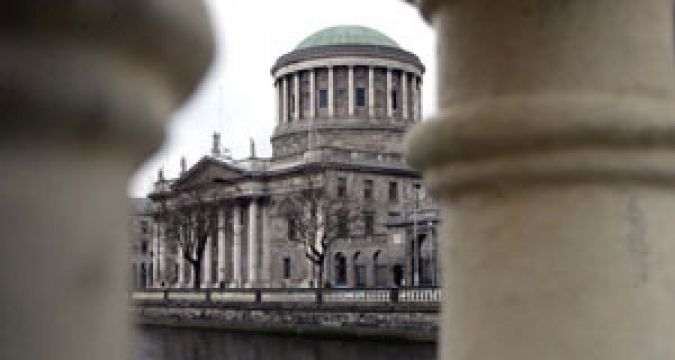The operator of a "Chicken Hut" restaurant in Mullingar, Co Wesmeath, has failed to get a High Court injunction over his eviction from the building.
Muhammad Sabir Hafeez sought the injunction against CPM Consulting Ltd which owns the the Oliver Plunkett Street building housing the restaurant.
On Wednesday, Mr Justice David Keane refused his applications for injunctions including restraining CPM from undertaking new works at the premises for a new tenant and allowing Mr Hafeez back into the restaurant.
Rent payments
The judge said CPM, whose director Ciaran Moynihan and his wife also own the premises next door to the Chicken Hut and whose family residence is at the rear, bought number 26 from a receiver in 2018 with the restaurant lease in place. A notice to quit was issued on March 21st last in a dispute initially over rent payments.
On September 14th last, CPM re-entered the restaurant premises and took possession of them, asserting that the lease was forfeit.
Mr Hafeez, who operates two other Chicken Huts in Drogheda and Dublin, brought High Court proceedings which CPM fully opposed.
The judge said Mr Hafeez contended, among other things, that payments he had made brought the rent up to date and in accepting them without demur, CPM waived its right to forfeit the lease.
Prohibition law
CPM argued that, making full allowance for those payments, each of which was made late in breach of the terms of the lease, the rent remained in arrears. CPM refrained from taking any steps between April and September due the Covid crisis and uncertainty in relation to the prohibition of evictions on commercial tenancies. That prohibition was lifted on August 1st.
CPM argued that since Mr Hafeez expressly invoked that prohibition law he could not, when it was lifted, argue that CPM's forebearance during the prohibition period amounted to a waiver of right to forfeiture of the premises.
Mr Justice Keane said he was not purporting to finally decide any of the legal or factual issues in the controversy between the parties.

He concluded Mr Hafeez had failed to make a strong arguable case that the forfeiture of the lease was invalid.
While acknowledging the need for robust scepticism, the judge was not satisfied an award of damages would be an adequate remedy for the loss caused to Mr Hafeez if he is refused injunctions but later succeeds at trial.
"However, still less am I satisfied that damages would be an adequate remedy for the loss caused to CPM if injunctions are granted against it but the claims against it fail at trial".
Overall, he found the balance of convenience or balance of justice lay against granting the injunctions sought.







